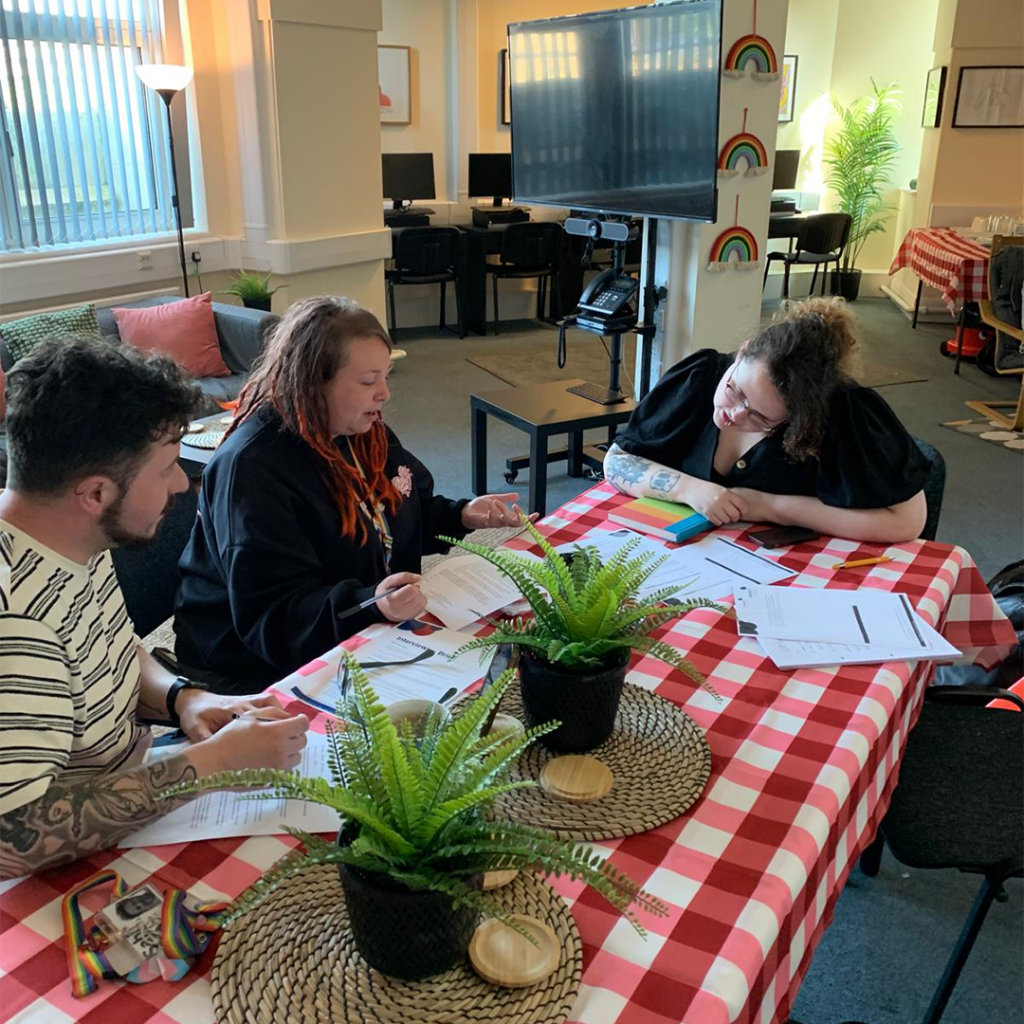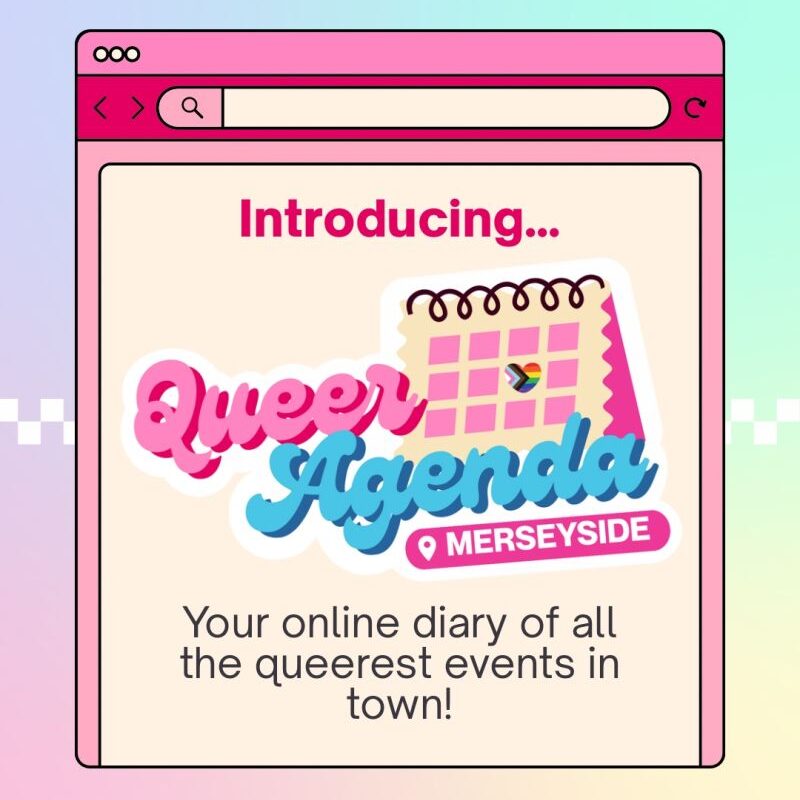
Our News
What Can Funders Do to Support LGBTQ+
In the UK, LGBTQ+ organisations receive just 10p in every £100 given to Voluntary and Community Organisations every year (Consortium, 2025).

David Costelloe, CFM’s Programmes Manager shared:
“There is a vibrant LGBTQ+ community sector in Merseyside, from long running and established charities to many community groups which are entirely reliant on incredible volunteers. The sector is undoubtably more Liverpool-centric, but it’s great to see that Pride activity is developing in all the areas now thanks to the work of local people and partnerships. The queer sector in Merseyside is naturally attune to the mental health needs of the community, and there is a variety of excellent wellbeing and sports groups which provide welcoming safe spaces. I personally have benefited from mental health support made available to me by an LGBTQ+ charity. My own experience tells me that the Merseyside community really does look out for one another.
Merseyside definitely holds its own when compared to the larger community in Manchester, though my sense is that there are fewer groups and less capacity in our local LGBTQ+ sector to raise funds. We are aware that nationally a disproportionately low level of funding goes into the queer community sector, there is definitely more work we need to do. I think a starting point is having more conversations, listening to relevant groups, and promoting that we want to receive more LGBTQ+ focused funding applications. We have given grants to the established charities in recent years, however I think there are more community groups who could benefit who have not applied to us before. I’m also aware that we don’t receive many applications focused more specifically on the Trans community, and there are intersectional causes which we don’t see much of in terms of the bids coming through. I also think it’s important to recognise the impact of LGBTQ+ charities throughout the year, and not only during Pride month. If any donors have a particular interest in reaching the LGBTQ+ sector in Merseyside by setting up a fund, this is one of the best ways to increase funding into the sector.”
“What I would say to any groups thinking about applying is to get in touch with us – we’d like to talk to you and meet you. Amy and I are both LGBQT+ and the whole team always make sure that LGBTQ+ funding applications are considered fairly. It’s great to be able to play a small part in supporting the sector, but I always say that it’s the staff and volunteers on the ground who do the hard work and who are making the real difference for our community to be safer, healthier, and proud!”
David Costelloe
Amy Norris, CFM’s Programmes & Marketing Executive shared:
“There are countless, wonderful, LGBTQ+ community groups across Merseyside, reducing the isolation we face, providing safe spaces, and supporting those in crisis. The LGBTQ+ community have always been self-sufficient. We care for one another, support one another, even fight for each other. We found a home within our safe spaces, established by community leaders and passionate volunteers, where a society that did not accept us could not harm us as easily. In some regards things have improved over the decades, but the current political climate continues to endanger the most vulnerable members of our family.
As funders, we hold the power. It is our responsibility to reach out and connect with marginalised, grassroot organisations. To support those who’s rights are under attack and to work to ensure they know we are here to help them. There are a number of larger, wonderful, LGBTQ+ organisations across Merseyside and the UK such as SAHIR, GYRO/TAY, Mermaids, and Homotopia; connecting with these organisations, and networks such as the Consortium, to ensure we are reaching LGBTQ+ groups when funding becomes available may help increase the groups awareness of the resources available.
Removing barriers to access is crucial, funders should be encouraged to accept applications from constituted community groups who are LGBTQ+, removing the requirement for them to be registered with either the Charity Commission or Companies House. They are already doing the work, ask anyone in our community, they are out there organising protests, fundraising for mental health support, and hosting events to bring their found families together in safe spaces. These groups may not have the knowledge and bid writing experience to put into words the work they are doing, however, as funders, we can take the time to see the work they’re doing through their social media, through their presence in the community.
There is a vibrant and self-sufficient LGBTQ+ community in the UK. We take care of each other, but we shouldn’t have to be in it alone. Funders need to ask themselves, what can we do, not just during Pride, but all year around, to support the LGBTQ+ community.”
